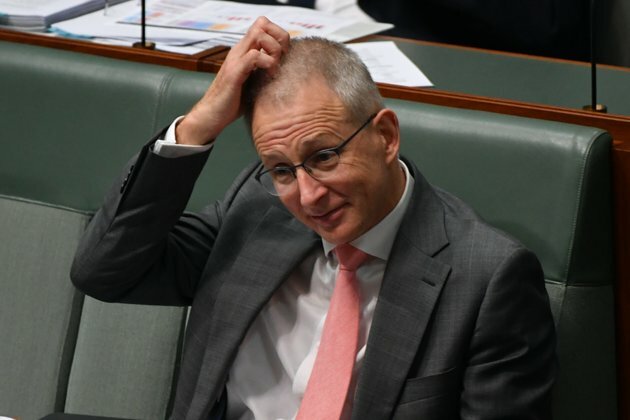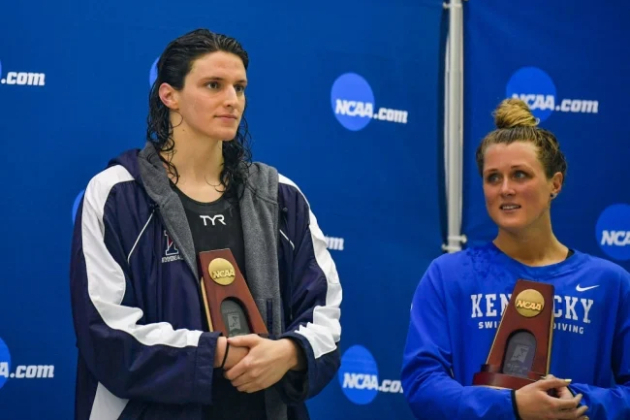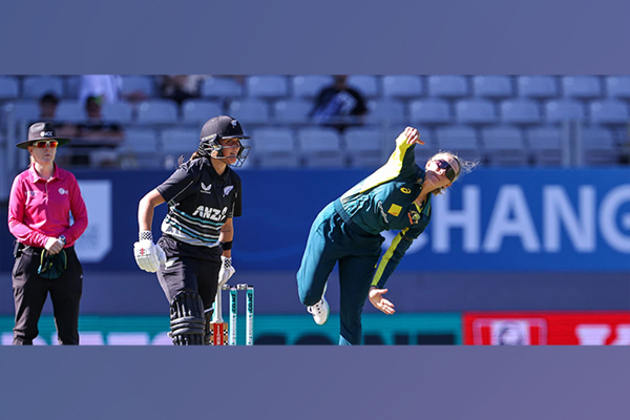What happens when your arts minister suffers from cultural cringe?
The Conversation
08 Apr 2021, 16:09 GMT+10

Who gets what in the arts has long been topic of much debate. There are myriad issues round elitism, regional distribution, excellence, artforms, organisations versus individuals and so on. Some of this is generated by an unequal allocation of funding as well as the limited amount available overall. But other issues relate to historical approaches and a hierarchy of arts practice.
It is unusual, though, for an arts minister to step into the fray. In 2015, then arts minister George Brandis decided to change the funding distribution and invent his own funding scheme for excellence. This did not work out well for anyone, including the minister.
Now the current Minister for the Arts, Paul Fletcher, has decided to put his view out there. At a talk on Wednesday to the Sydney Institute, Fletcher attacked the arts sector for being a "cosy club" of elites while raising the issue of "fairness", particularly in relation to regional and urban distribution of arts funding.
He described the audience for the arts as "an elite group of people wearing black tie going to opening nights in our big cities". This might sound more like a Labor dig at the top end of town than a Coalition line. The minister seems to be confusing privileged audience members with hard-working arts workers, who could use support rather than insults.
Read more: A litany of losses: a new project maps our abandoned arts events of 2020
Bruised, battered, forgotten
Perhaps, like many, Fletcher is still feeling a bit bruised from 2020. The art sector was shutdown due to the pandemic and then was generally ignored for more than eight months by his government, despite the dramatic economic impact on the sector. The extremely slow response by the federal government was not seen by the arts sector as "sensitive" or "fair" for that matter. The federal government did end up providing a large amount of funding at the end of 2020 and into 2021, but the process for deciding "who got what" was hardly transparent.
Now it seems the minister wants to raise issues around elitism and funding share, as well as the urban/regional debate. This seems a little disingenuous given recent accusations of funding "rorts" at both federal and state levels.
Fletcher has declared he wants to see if he can shift the Labor party and Greens from their high ground positions in relation to the arts, while reminding everyone of past contributions by the Coalition to the cultural sector.
However, it is the minister's government that disappeared the "arts" into an amorphous department of infrastructure.
It is the minster's government that has continued to downplay the importance of Australian content by reducing "red tape" obligations to produce Australian content. It is the minister's government that has continued to decrease the amount of arts funding available. And yes, it is the minster's government that chose to ignore the needs of the arts sector during a time of desperate need.
Yet, in this speech this week, Fletcher claimed the "level of funding committed to the arts by the Morrison Government in 2020-21 has been unprecedented". Belated additional funding for COVID relief may have increased the federal arts allocation dramatically for the past 12 months. But this additional funding has not been equitably allocated, and the government has continued to ignore cultural workers who were not eligible for JobKeeper or JobSeeker.
Read more: Latest arts windfalls show money isn't enough. We need transparency
Big arts, big funding
Certainly, it can be agreed arts funding is skewed towards the big end of town. The opera companies, symphony orchestras and major theatre companies receive more than 60% of the funding available from the Australia Council.
Is Fletcher talking about changing this ratio or providing more money overall? Or is he using the opportunity to have a go at a vulnerable sector when he is meant to be their advocate? The minister maybe diving in at the deep end, without necessarily understanding the full complexity of the arts or arts funding.
Perhaps he is playing to supporters when he argues too much funding is going to urban performing arts companies, rather than, for example, to regional activity or commercial productions that tour.
But professional arts practice is usually located in urban centres because that is where artists live and work. It is also where they can attract the biggest audiences, which is critical when arts activity depends on box office income. Of course, there are also fantastic arts groups and individuals working in the regions that also need to be recognised, celebrated and more generously funded. But in the annual Australia Council report for 2019-2020, it is noted that of "government initiatives", only 5% of total arts funding was allocated to regional areas. If the government was serious about providing more funding to regional areas, it could certainly increase this percentage.
However, since the Coalition parties came into power in 2013, the amount of money available for arts funding has continued to decrease. This is something that could easily be changed given the small amount overall given to arts practice at the Australia Council ($187.1 million in 2019-2020). A further 95 companies have lost their funding since 2016.
Over the past eight years there has been a dramatic continual decline in arts funding relative to population growth, which has particularly affected individuals and small to medium arts organisations. Is the minister arguing that he wants to give more money to the sector or is he really concerned about electoral boundaries and getting the support of Coalition voters in the regions?
The arts sector would love to have a minister who demonstrates they care about the needs of the sector and does their best to improve the position of the arts in Australian society. Instead, it feels like Fletcher is employing and possibly enjoying a "divide and rule" approach, which helps no one in the end, least of all the arts.
Read more: At moments like these, we need a cultural policy
Author: Jo Caust - Associate Professor and Principal Fellow (Hon), School of Culture and Communication, The University of Melbourne 
 Share
Share
 Tweet
Tweet
 Share
Share
 Flip
Flip
 Email
Email
Watch latest videos
Subscribe and Follow
Get a daily dose of Australian Herald news through our daily email, its complimentary and keeps you fully up to date with world and business news as well.
News RELEASES
Publish news of your business, community or sports group, personnel appointments, major event and more by submitting a news release to Australian Herald.
More InformationInternational
SectionDelta Jet's wing strikes runway during rough landing at LaGuardia
NEW YORK CITY, New York: A Delta Air Lines plane's wing hit the runway at LaGuardia Airport during a rough landing over the weekend....
Amid measles outbreak, cases in Texas, New Mexico climb to 317
AUSTIN/SANTA FE: Measles cases in Texas and New Mexico increased to 317 on March 18, up from 294 four days earlier, as the U.S. faces...
US weighs broad travel ban covering dozens of countries
WASHINGTON, D.C.: The Trump administration is considering strict new travel restrictions for citizens of dozens of countries, according...
US: Maine violated federal law by allowing transgender girls in sports
WASHINGTON, D.C.: The Trump administration announced this week that Maine's education officials violated federal law by allowing transgender...
Some states still under watch for wind and potential tornadoes
NEW YORK CITY, New York: Severe storms and tornadoes continued to threaten parts of Pennsylvania, New York, and several Mid-Atlantic...
United Nations building in Gaza destroyed, 1 dead, 5 injured
As Israeli tanks rolled into Gaza on Wednesday heralding a new ground invasion, a UN building was destroyed in a bombing, killing one...
Sydney
Section(SP)CHINA-SHANGHAI-FORMULA 1-SPRINT QUALIFYING (CN)
(250321) -- SHANGHAI, March 21, 2025 (Xinhua) -- Racing Bulls' driver Tsunoda Yuki (L) of Japan drives during the sprint qualifying...
Indonesia's Mount Lewotobi Laki Laki volcano erupts
Jakarta [Indonesia], March 21 (ANI/WAM): The Mount Lewotobi Laki Laki volcano in south-central Indonesia erupted three times on Friday,...
Sydney Sweeney to take on dual role in thriller 'I Pretended to Be a Missing Girl'
Washington [US], March 21 (ANI): Warner Bros has greenlit a new thriller project, 'I Pretended to Be a Missing Girl,' with Sydney Sweeney...
Diksha Dagar off to solid start with 4-under 67 in Australia
Wollongong [Australia], March 21 (ANI): Undeterred by the missed cut last week, Diksha Dagar, a two-time Ladies European Tour winner,...
Ashleigh Gardner suffers injury as Australia register win over New Zealand Women in first T20I
Auckland [New Zealand], March 21 (ANI): Off-spinner Ashleigh Gardner met with an injury during the first T20I at Eden Park as Australia...
"Aim is probably just to get back into England side": Sam Curran on his international comeback ahead of IPL 2025
Chennai (Tamil Nadu) [India], March 21 (ANI): Ahead of the start of the Indian Premier League 2025, Chennai Super Kings all-rounder...













